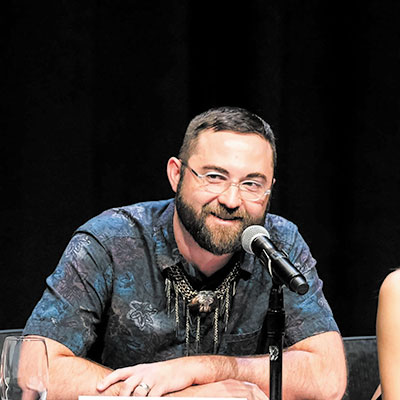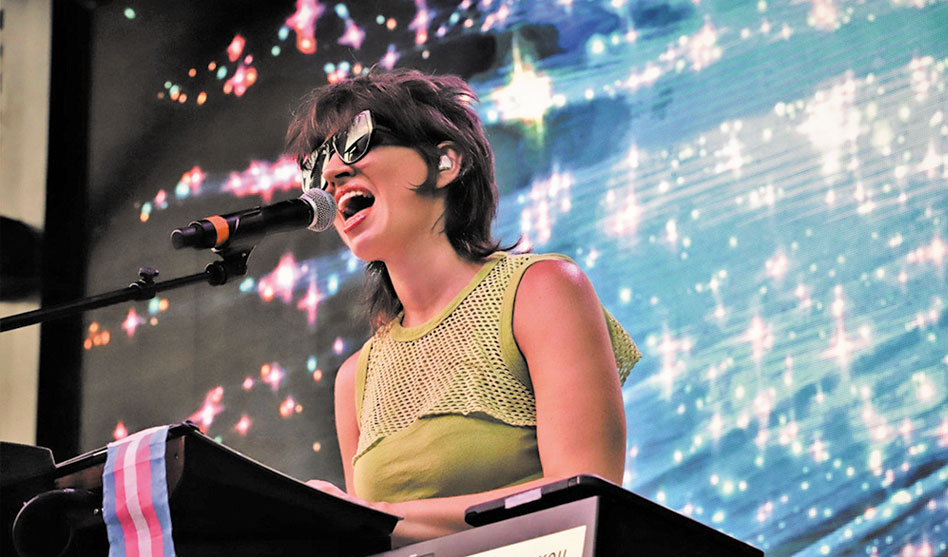Poppy Xander
Tell your coming out story again, rewrite your story, come out for the first time or just come to celebrate
DAVID TAFFET | Senior Staff Writer
taffet@dallasvoice.com
The first National Coming Out Day event in Dallas took place in the early 1990s. Human Rights Campaign folks attended a few years later and thought it was such a good idea that they rolled it out to the rest of the country. Since then, Dallas has celebrated NCOD with smaller events and large Gay Days at the State Fair.
DR Hanson said he’s been wanting to do a National Coming Out Day event for a while, so he reached out to Resource Center. Now with Aloe Johnson and the Sapphiq program, the center’s social network for queer women and non-binary folks, along with Nina Alton and Lauren Veatch, Hanson has put together what should be a fun event to once again celebrate NCOD in Dallas.
Many people didn’t have a choice about how to come out: Some were outed, while for others, coming out didn’t go as planned or hoped, Hanson explained.
But this National Coming Out Day, “You can rewrite your coming out,” he said. “Exorcize shame. We know how to celebrate you.”

DR Hanson
And coming out doesn’t have to be about sexual orientation or gender identity. Hanson suggested that if you’re embarrassed about something in your life, “remove the yoke of shame.”
The NCOD event takes place at Sue Ellen’s, 3014 Throckmorton St., at 7:30 p.m. on Tuesday, Oct. 11 — National Coming Out Day. Non-binary musician Poppy Xander will be performing, and rainbow cake will be served.
For people who would like to tell their coming out stories, rewrite their coming out stories or come out for the first
time, there will be a door to literally come out of.
But you don’t have to come out at all. You can just come to “hoot and holler,” Hanson encouraged.
Johnson said around NCOD, the center usually receives a number of coming out emails. The pressure is on around this time of year to come out, but coming out is a process.
No one should feel pressured to come out at the event, Hanson said. Just listening to other people’s stories might be part of your process.
And, he said, he hopes that allies will be there to share their coming out stories, too. Some allies have had a harder time explaining to other folks just why they’re supporting the LGBTQ community when they’re not forced to be part of it. But allies, of course, are an important part of the community, and their stories need to be celebrated as much as everyone else’s, Hanson said.
As for Resource Center’s participation, Johnson said when she was approached by Hanson, the center was already planning on acknowledging NCOD. And, they added, “We’ve had a lot of luck partnering with DR in the past.”
This is also a kickoff — or coming out — for Resource Center as it debuts its new Family and Community Empowerment Services program — or FACES. The new department brings together Thrive (for ages 50 and up), Youth First, United Black Ellument, Fuse (for men 18-35) and Gender Brave (for the younger trans community) under one umbrella. Johnson said they can become “more efficient and effective working under one roof” and can
become “stronger together with an intergenerational and inter-community approach.”
Hanson, an artist, said his art is creating spaces: “The art that ignites my passion is to bring people to fellowship in a
safe space,” he said. “Be seen. Come out.”
Hanson added that his theater training should keep the event campy and cheeky. On the other hand, he also said he likes the idea of bringing NCOD back to its roots and that there was something special about holding the event in the oldest lesbian bar in the U.S.
















